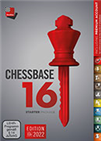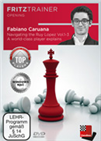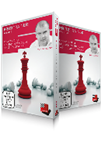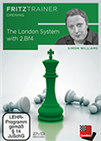An all-Dutch finale
The much-anticipated 2021 edition of the Tata Steel tournament in Wijk aan Zee was an all-around success, providing chess enthusiasts with high-quality games and an exciting final day of action. The organizers of the event took a major risk in putting together an over-the-board tournament amid the worldwide crisis, and luckily managed to overcome all the obstacles that came up.
Chess-wise, we got to enjoy high-quality games by extremely well-prepared players, who probably saved their opening surprises for a classical event during the period of blitz and rapid online tournaments. Notably, the Sicilian Najdorf was explored repeatedly in Wijk.
It was also a major success for the Netherlands, as the two Dutch representatives tied for first place, securing tournament victory for a local player no matter the result of the playoff — a Dutch player won the event for the last time back in 1985, when Jan Timman scored 9/13 to finish ahead of John Nunn and Alexander Beliavsky, who shared second place a full point behind.
 Surprisingly, though, it was the younger Dutch player who clinched the title. Jorden van Foreest was the fourth lowest-rated player in the lineup, but managed to catch up with his compatriot Anish Giri by beating Nils Grandelius in the final round. Van Foreest would go on to survive three inferior positions in the blitz tiebreaker to win the tournament.
Surprisingly, though, it was the younger Dutch player who clinched the title. Jorden van Foreest was the fourth lowest-rated player in the lineup, but managed to catch up with his compatriot Anish Giri by beating Nils Grandelius in the final round. Van Foreest would go on to survive three inferior positions in the blitz tiebreaker to win the tournament.
The 21-year-old grandmaster from Utrecht had a great performance throughout and, like Giri, finished the event undefeated. A second of Giri in many elite tournaments, he acknowledged the fact that the blitz decider could have gone either way:
Blitz is just a coin flip basically, so full credit to him, he played a really good tournament, and he really deserved to win it — he could have won both of his last games too I think, but this is just how it goes.
A member of the noble Van Foreest family, Jorden is the eldest of five siblings. His brother Lucas (b. 2001) won the 2019 Dutch Championship after beating Jorden on tiebreaks, while his sister Machteld (b. 2007) was the first girl ever to win the Dutch U-12 Championship.
Van Foreest gained 30.2 rating points in Wijk and will join the 2700-club in the next official FIDE ratings list. For the time being, however, he does not think he will achieve such a good result in the future:
I think there is basically a zero percent chance that I will do this any time soon again.
 Your key to fresh ideas, precise analyses and targeted training!
Your key to fresh ideas, precise analyses and targeted training!
While a number of chess players and followers have expressed heartfelt congratulations to Van Foreest for his magnificent showing, many have also referred to the fact that this might have been a painful loss for Giri. The higher-rated Dutchman gained 12.4 rating points and has climbed to number 7 in the world ranking, but given the circumstances he most likely had a single goal going into the last round — to win the tournament.
This is the second time Giri shares first place ‘in regulation’ and fails to win the event on tiebreaks, as he lost the title to Magnus Carlsen in 2018 after collecting 9 points in the classical section. Furthermore, a year later, he scored 8½/13 — the same score as this year — to finish a half point behind the world champion.
The winner of the 2020 edition, Fabiano Caruana, aptly described the final result of the players tied for first place:
For Anish is sort of an expected result to be leading — I mean he’s a top player and +4 is a good result, but it’s nothing that we would consider too surprising. Jorden I think played amazingly well, it was super impressive. [...] I feel like this might correspond to his strength — it didn’t feel like a fluke or anything.
 The Ruy Lopez is one of the oldest openings which continues to enjoy high popularity from club level to the absolute world top. In this video series, American super GM Fabiano Caruana, talking to IM Oliver Reeh, presents a complete repertoire for White.
The Ruy Lopez is one of the oldest openings which continues to enjoy high popularity from club level to the absolute world top. In this video series, American super GM Fabiano Caruana, talking to IM Oliver Reeh, presents a complete repertoire for White.
Anish Giri | Photo: Jurriaan Hoefsmit
Winners and losers
With all the drama pertaining the fight for the title, other major results might go slightly unnoticed — both positive and negative.
The tournament was an outstanding achievement for the three youngest players in the field. Alireza Firouzja (17 years old) finished a half point behind the leaders and was inches away from catching up with them in the final round (more on that below); Andrey Esipenko (18) defeated Alexander Donchenko on Sunday to get third place on tiebreak criteria; while Van Foreest, of course, achieved the biggest success of all.
Firouzja gained 10.2 rating points and is now the 13th highest-rated player in the world, while Van Foreest (+30.2) and Esipenko (+24.1) made their way into the 2700-club.
 This DVD allows you to learn from the example of one of the best players in the history of chess and from the explanations of the authors (Pelletier, Marin, Müller and Reeh) how to successfully organise your games strategically, consequently how to keep y
This DVD allows you to learn from the example of one of the best players in the history of chess and from the explanations of the authors (Pelletier, Marin, Müller and Reeh) how to successfully organise your games strategically, consequently how to keep y
18-year-old Andrey Esipenko had a breakthrough performance | Photo: Jurriaan Hoefsmit
On the other side of the spectrum, it was quite a disappointing tournament for some of the ‘veterans’ in the field.
Maxime Vachier-Lagrave lost four games and won one for a 5/13 performance. The Frenchman lost a whopping 26.3 rating points, falling to number 15 in the ratings list, while Polish stars Radoslaw Wojtaszek and Jan-Krzysztof lost over 10 rating points in the last two weeks.
Also disappointing, given his standards, was Carlsen’s performance. The seven-time winner of the tournament in Wijk aan Zee won three games and lost to Esipenko for a 2771 TPR. The world champion lost no less than 15.3 rating points and later confessed:
The overall performance was shameful, to be honest. There were really very, very few moments of redemption in the tournament. [...] I have to do better in the future.
Donchenko finished in clear last place, but it would not be fair to call his performance a major failure, as he was invited as a (very) late replacement when Daniil Dubov cancelled his participation.

World champion Magnus Carlsen | Photo: Jurriaan Hoefsmit
Firouzja gets justly upset
Prior to the final round, three players knew that they would get a chance to catch the leader if they won and Giri only collected a half point. With Caruana’s draw and Van Foreest’s victory already in the books, the one player still fighting over the board was Firouzja. Going into the sixth hour of play, the youngster had a better position against Radoslaw Wojtaszek.
By that time, the spectators and players that had finished their games already knew that even if Firouzja won his game and joined the leaders Giri and Van Foreest would reach the playoff according to the tiebreak criteria. We do not know whether Firouzja was aware of this, but while he still was trying to convert a sharp position into a win the arbiters asked him and Wojtaszek to move to another board in order for the Dutchmen to occupy centre stage.
 These DVDs are about Understanding Middlegame Strategies. In the first DVD dynamic decisions involving pawns are discussed. The second DVD deals with decision making process concerning practical play.
These DVDs are about Understanding Middlegame Strategies. In the first DVD dynamic decisions involving pawns are discussed. The second DVD deals with decision making process concerning practical play.
This was the position Firouzja was trying to convert, with his bishops pointing directly at the opponent’s kingside and his own king vulnerable to potential attacks if the position opened up.
As shown in the official webcams, Firouzja was visibly upset when they asked him to move to another board, as he either thought he still had chances to reach a playoff or was trying to finish a remarkable event with a win over a fellow top grandmaster.
In the end, the 17-year-old finished his game while Giri and Van Foreest were already playing blitz, and only managed to get a half point in his last-round encounter.

Radoslaw Wojtaszek facing the brilliant Alireza Firouzja | Photo: Jurriaan Hoefsmit
Van Foreest, Carlsen and Esipenko score
While the blitz games in the tiebreak could have gone either way, credit should be given to Van Foreest for having won his last classical game of the tournament in style. Facing Grandelius’ Najdorf, he gave up a pawn out of the opening and made the most of the initiative in a sharp encounter while knowing all too well that a win would most likely get him to a playoff. The Dutch grandmaster found the most precise manoeuvre to increase his advantage on move 21:
21.Nb5 axb5 22.cxb5 and Black immediately gave back the piece with 22...Bxb5 23.Qxb5 as the connected passers would otherwise easily march down the board.
Van Foreest continued to impress with his play until he got the full point. A king march was a stylish way to finish off his opponent:
By move 46 the white king had reached h6 with decisive effect:
46...fxe5 47.Qxe5 and Black resigned.
Carlsen and Esipenko also finished the event on a high note. The world champion defeated Vachier-Lagrave with white while the young Russian got the better of Donchenko with the black pieces.
Select an entry from the list to switch between games

Jorden van Foreest defeated Nils Grandelius | Photo: Jurriaan Hoefsmit
The blitz tiebreaker
Both 5-minute games (with 3-second increments) saw Giri getting the upper hand, simplifying into slightly superior positions and failing to convert them into wins as they required utmost precision. Van Foreest should again be given credit for the way he handled his nerves under the pressure.
In Armageddon, Giri had the white pieces and needed to win in order to claim the title. He got a dream position out of a London System, with all the positional trumps on his side and an extra minute on the clock:
 "Simple yet aggressive!" Enjoy this new exciting DVD by Simon Williams. Let the famouns Grandmaster from England show you how to gain a very exciting yet well founded opening game with the London System (1.d4 d5 2.Bf4).
"Simple yet aggressive!" Enjoy this new exciting DVD by Simon Williams. Let the famouns Grandmaster from England show you how to gain a very exciting yet well founded opening game with the London System (1.d4 d5 2.Bf4).
Black is in deep trouble, with his light-squared bishop a particularly useless piece stuck behind his own pawn structure. Instead of playing the natural 26.Qc3, though, Giri spent a whole minute (there were no increments before move 60) calculating the forcing 26.c6, which in fact gave up his edge — both on the clock and in the position.
What transpired from that point on was a typical time scramble between two players that are fully aware of the fact that the game has almost nothing to do with the quality of the moves as the clock keeps ticking down. In the end, the younger Dutchman prevailed.
Select an entry from the list to switch between games

Back in the day, in the Wijk aan Zee tournament, in case of a tie for first place the players were declared co-winners — if those rules were still be in place, Anish Giri would have claimed the title twice already | Photo: Jurriaan Hoefsmit
Round 13 results
Final standings
All games
Links


















 Surprisingly, though, it was the younger Dutch player who clinched the title. Jorden van Foreest was the fourth lowest-rated player in the lineup, but managed to catch up with his compatriot Anish Giri by beating Nils Grandelius in the final round. Van Foreest would go on to survive three inferior positions in the blitz tiebreaker to win the tournament.
Surprisingly, though, it was the younger Dutch player who clinched the title. Jorden van Foreest was the fourth lowest-rated player in the lineup, but managed to catch up with his compatriot Anish Giri by beating Nils Grandelius in the final round. Van Foreest would go on to survive three inferior positions in the blitz tiebreaker to win the tournament.




